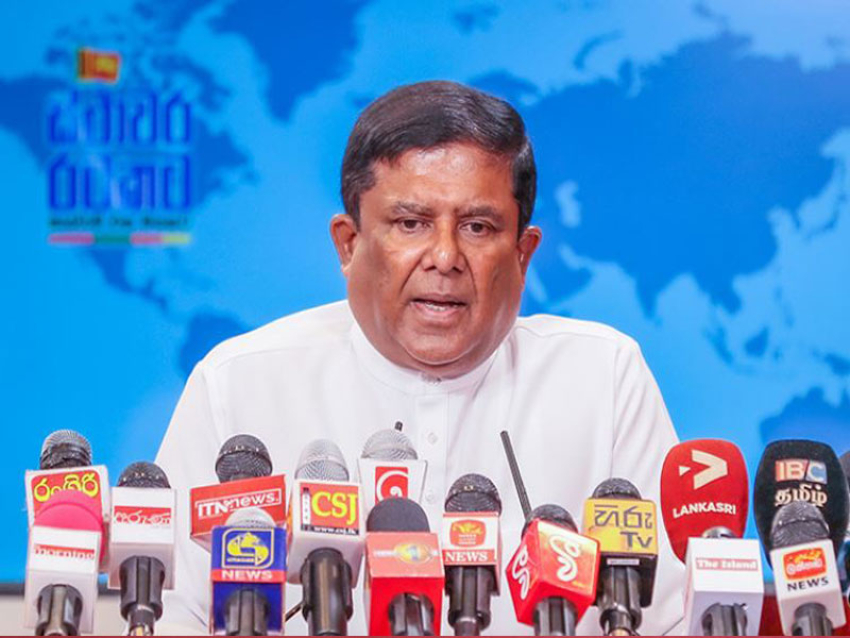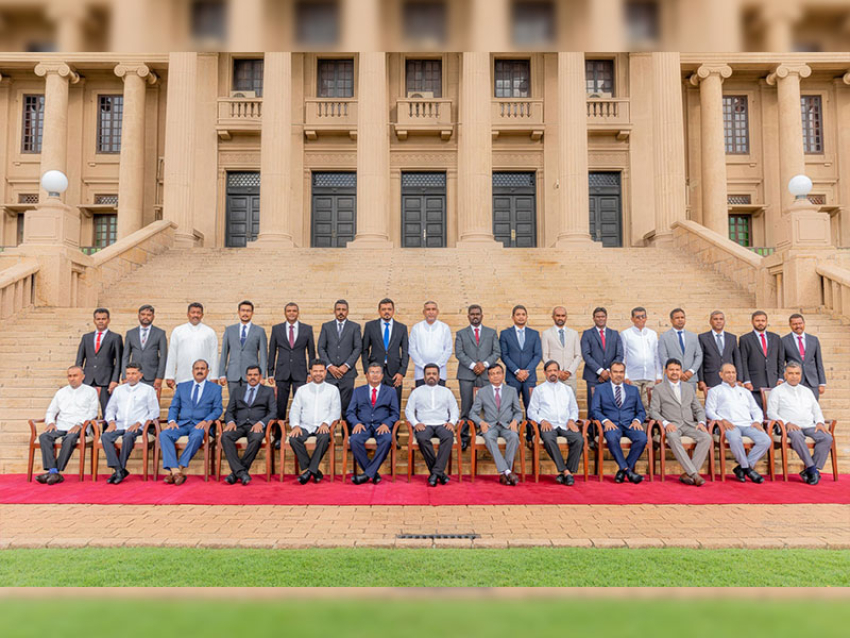Member of Parliament, Wajira Abeywardana, notified that adhering to traditional political ideologies in the upcoming Presidential Election could risk a return to civil war in the country. He stated that if such a situation arises, the responsible parties should be held accountable.
He noted that while the new Economic Transformation Bill was unanimously passed by all 225 members of Parliament, it is unfortunate that some individuals have presented misleading ideas to the public. He also urged setting aside traditional divisions and uniting behind the national plan to build the country.
Member of Parliament Wajira Abeywardana made this statement during the press conference held today (29) at the Presidential Media Centre (PMC), themed ‘Collective Path to a Stable Country.’
Parliamentarian Wajira Abeywardana further commented,
The upcoming Presidential Election on September 21 will be pivotal in selecting the 9th Executive President of the country. Currently, traditional political parties have struggled to maintain their influence. Historically, Sri Lanka has experienced several rebellions and civil wars, including a rebellion against the previous regime.
Given this context, the question arises: will voters use their ballots to risk a situation resembling a third civil war, or will they choose to prevent such a scenario? The decision on September 21 will be crucial in shaping the future of civil society in Sri Lanka.
If political parties continue to adhere to traditional ideologies, caste-based politics, or religious divisions, they will be held responsible for any potential third civil war. It is crucial for these parties to remember this.
During the country’s economic crisis, the opposition did not take responsibility for rebuilding. Instead, President Ranil Wickremesinghe, the sole member of the United National Party (UNP) in Parliament at the time, took on the task of securing the country’s future. On July 22, 2022, he assumed the role of the 8th Executive President and committed to rebuilding the nation.
Many reforms were introduced to rebuild the country, with the Economic Transformation Act being a key initiative. This Act is crucial and no political party can operate outside of its framework. By 2027, five years after the country declared bankruptcy, the Economic Transformation Act mandates that the country’s economic growth rate should be at 5%. This Act establishes accountability for past administrations and requires that any political party present its policies in accordance with it.
Additionally, the Economic Transformation Act aims to foster a dynamic economy that integrates domestic and international trade, industry, and positions Sri Lanka to compete with Asia and the global market.
Some political parties are still misleading the public with traditional tactics. For instance, the Budget Office Act, the Economic Transformation Act, and the Public Debt Management Act are being violated as these policies are presented to the public in contradiction to the principles of these key laws. In my view, this will prevent Sri Lanka from rebuilding effectively. For instance, the Economic Transformation Act, the Budget Office Act, and the Public Debt Management Act should remain free from political influence.
It’s disappointing that despite the unanimous support of all 225 MPs for the new Economic Transformation Act in Parliament, they publicly express conflicting views. I urge all parties to recognize the country’s situation and avoid such contradictions. They need to set aside their religious, caste and political differences and work together on a national plan for the country’s development.
President Ranil Wickremesinghe is urging all parties to support a long-term national development program, putting aside their individual policies to avoid undermining the country’s progress efforts.
We must always be truthful with the public. Some still make false claims about corruption and accuse the current administration of inaction. However, there are courts and police forces dedicated to controlling corruption, and these institutions have been strengthened. Additionally, President Wickremesinghe has implemented Asia’s most stringent anti-corruption law.
Today, some individuals are accusing others of selling the country. For example, when the Hilton Hotel was built, some claimed it was a sale, but now that the hotel is profitable, these same critics claim it as their success. Such individuals lack understanding and vision regarding economic development.
We don’t always need basic factories; countries like Korea have progressed from garment factories to manufacturing ships and airplanes. We must adapt to these new economic realities.
To build this country, we need to collaborate on a national plan spanning 6 to 15 years. This is why President Ranil Wickremesinghe is running for the presidential election as an independent candidate to achieve this goal. It’s crucial that we stop misleading the public for political gain. There is no alternative path to recovering our nation.
It is crucial for all Sri Lankans to unite and prioritize the country’s well-being. In a democracy, political parties have the right to express their opinions. However, we must avoid causing further harm to the country. Voters should approach the upcoming Presidential Election with a focus on the nation’s future, not out of hatred or revenge. This election should not be used as a means to undermine the country.




















